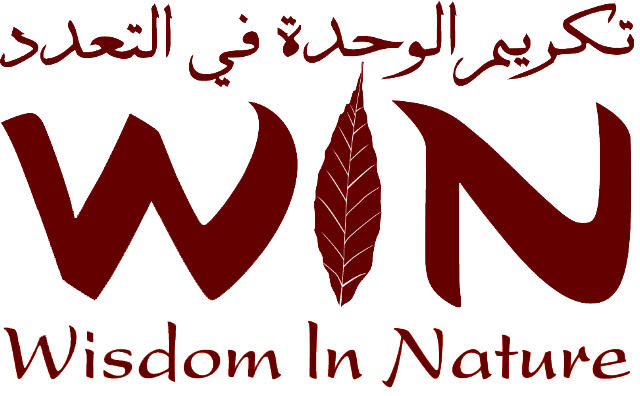WiN - Cultivating Contemplative Activism within Islam
Wisdom in Nature (WiN) is a contemplative activism group grounded in Islamic principles. What does contemplative mean in the context of an activist group? Contemplative activism, as we practice it, means that as far as is possible we give space for reflection before we act – for example, we start our meetings with a short period of silence. This practice helps draw out inner wisdom that influences the extent to which we can wisely and sustainably engage in activism ‘out there’. A contemplative approach also draws on and cultivates wholeness - the idea that various domains are interconnected - social issues, the economy, and the environment; the inner and the outer; and the means and the ends. With regard to the last point, we emphasize that the means is just as important as the end and actually serves as a goal in itself.
The implications of a process orientated approach can also be seen in terms of funding. From party politics to published scientific literature, sources of funding are recognized as having an influence over values and outcomes. While WiN depends on donations, we focus on individuals and have managed to work without financial support from corporations or government. Such an approach also facilitates the cultivation of cooperative relationships with other groups and the use of existing assets and resources. Our emphasis on process is also reflected in the means through which we make decisions. We have found that creating the space and investing time into decision-making that draws out consensus enables greater ownership over decisions by those involved and contributes to a deeper democratic process. Such an approach can also be seen in movements developing across the world – democracy movements in North Africa, the real democracy movement in Spain, Occupy Wall Street (and other occupy movements) in the US, and Climate Camp here in Britain.
The aspects of contemplative activism that I have mentioned above are not necessarily confined to faith-based activism (and not all faith-based groups apply contemplative approaches); secular groups also use such approaches. But contemplative activism does have a tradition and basis in Islam that has been undervalued, and that we are trying to revive. We articulate our approach through a framework consisting of four strands, each of which involves a turning away from destructive patterns and a turning toward ways that nurture our world and its diverse communities. These are: earth and community; deep democracy; whole economics; and climate justice – all of which are underpinned by a contemplative dimension within the framework of Islam. Our activities include educational workshops and training, participation in demonstrations, and practicals on the land.
©Shumaisa Khan
